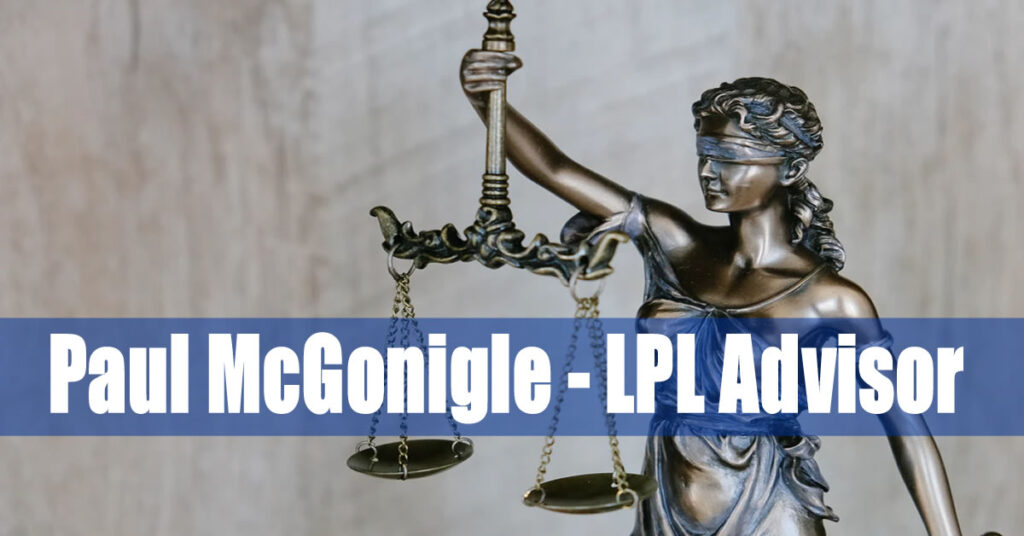As a pro in crunching numbers and penning down thoughts, I’ve seen my fair share of financial nightmares. However, what’s come out about Paul McGonigle, previously with LPL Financial, really takes the cake. The big guys at the Department of Justice say he could be looking at a whopping 37 years in the slammer. Why? Well, he’s accused of pulling the wool over his older clients’ eyes, sucking their retirement funds dry. It’s a real stab in the back to the trust folks put in their money gurus.
In this challenging role, I’ve witnessed the impact of such fraud on victims. Starting from 2015 and lasting until 2021, McGonigle supposedly made unauthorized withdrawals by masquerading as his clients and forging their signatures—a story that’s all too common in elder fraud. Sadly, 15 clients have reportedly lost over $1.4 million. Despite being barred by FINRA in November 2020, he allegedly continued these regrettable actions for months afterward.
As an industry expert for over three decades, I find it crucial to remind everyone to regularly check your advisor’s record on FINRA’s BrokerCheck to ensure their credibility.
The Potential Consequences for Financial Misdeeds
If found guilty, the penalties for McGonigle’s alleged crimes are significant. Money laundering could result in a decade behind bars, while investment advisor fraud carries up to a five-year sentence. Aggravated identity theft mandates a two-year term. For mail and wire fraud, the stakes are even higher—up to 20 years. Plus, each count might lead to fines of $250,000 or more.
 (AD) Lost money because of bad financial advice or outright fraud? You may get it back by filing a complaint. Haselkorn & Thibaut has 50+ years of experience and a 98% success rate. Don’t delay if you’ve suffered losses. (AD) Lost money because of bad financial advice or outright fraud? You may get it back by filing a complaint. Haselkorn & Thibaut has 50+ years of experience and a 98% success rate. Don’t delay if you’ve suffered losses. Call Haselkorn & Thibaut at 1-888-784-3315 for a free consultation, or visit InvestmentFraudLawyers.com to schedule. No Recovery, No Fee. |
Recognizing Your Rights Against Financial Advisors
Understanding securities law and FINRA rules are paramount, especially if you think you’ve been wronged by a financial advisor. I always advise individuals to consult with knowledgeable investment-loss recovery attorneys who can navigate these complex waters.
During my career, I’ve seen many investors recover from losses due to unscrupulous financial advisors. Handling such cases requires exceptional insight into the legal landscape surrounding financial advisor misconduct.
Negligent Advice Can Be Costly
Financial negligence doesn’t require intentional harm—simply failing to act prudently can result in losses. If an advisor disregards your risk tolerance and steers you toward unsuitable investments, they’ve been negligent. You have every right to pursue legal action for their bad advice.
The Sacred Trust: Breach of Fiduciary Duty
Advisors breaching their fiduciary duty is another matter of concern. When they fail to align with your financial goals or withhold crucial information, you might be entitled to compensation. Remember, unauthorized trading, maintaining an undiversified portfolio, suggesting inappropriate investments, and excessive trading or ‘churning’ are all instances where an advisor hasn’t prioritized your interests.
The Importance of Oversight: When Firms Fail to Supervise
Brokerage firms must vigilantly oversee their financial advisors. Any neglect here can lead to financial losses for clients. A firm’s failure to supervise is a serious lapse and can be the foundation for legal recourse.
As we reflect on these matters, a quote from Warren Buffett comes to mind: “It takes 20 years to build a reputation and five minutes to ruin it.” This thought is particularly relevant when considering the vital trust between financial advisors and their clients—a trust that, once broken, is difficult to restore.
A financial fact that resonates with me, and should with any investor, is that according to a 2019 study by the SEC, over $100 million was recovered for investors due to actions against advisors who had misled or failed their clients. It’s essential for individuals to arm themselves with knowledge and exercise due diligence when selecting a financial advisor. Always remember to verify an advisor’s FINRA CRD number for added peace of mind and protection against fraud.
In conclusion, safeguard your finances by being informed, staying vigilant, and seeking appropriate action should the need arise. As an analyst, it’s clear that a robust legal system and stringent regulations are essential for a secure investment environment. If you suspect your advisor is not upholding their duty, I urge you to take action. Your financial well-being may depend on it.


